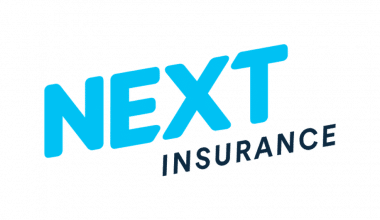Understanding how a business loan works is fundamental for entrepreneurs embarking on their ventures. In this guide, we’ll demystify the process, answering key questions such as what a business loan is and how to get a loan to start a business. This article will give a clear understanding of how business loans work and also explore the practical aspects, including utilizing a business loan calculator, enabling you to make well-informed financial decisions for your entrepreneurial journey.
What is a Business Loan?
A business loan refers to a financial agreement wherein a lending institution disburses money to a business entity. These loans are used for various purposes, such as expanding operations, purchasing equipment, or covering operating expenses. Business loans typically come with an agreed-upon repayment schedule and interest rate. The borrower is required to repay the loan amount along with the interest over the agreed-upon term. The lender may require collateral or a personal guarantee from the business owner to secure the loan. Business loans are essential for business growth, and understanding how they work is crucial for responsible financial management.
How Does a Business Loan Work?
Business loans work in a crucial way. It’s a financial arrangement in which a business borrows a sum of money from a lender to fund various business needs and initiatives. The loan process begins when a business owner or manager applies for a loan with a financial institution. Such as a bank, credit union, or online lender. During the application process, the lender evaluates various factors, including the business’s creditworthiness, financial history, and the purpose of the loan. Once approved, the borrower receives the loan amount, which can be used for purposes like expanding operations, purchasing equipment, covering operating expenses, or addressing specific financial challenges.
Repayment terms for business loans are typically structured with an agreed-upon interest rate and a specific loan term. The borrower is responsible for making regular payments, which include both the principal amount borrowed and the interest accrued, over the course of the loan term. Depending on the lender and the type of loan, repayment may occur on a daily, weekly, or monthly basis. Some business loans may require collateral, such as assets or property, to secure the loan, while others may rely on the borrower’s creditworthiness and personal guarantee. Understanding how business loans work is crucial for effective financial management and leveraging capital to support and grow a business.
How to Get a Loan to Start a Business
Firstly, entrepreneurs need a detailed business plan covering their concept, market analysis, finances, and funding needs. Then, approach lenders like banks, credit unions, online lenders, or venture capitalists to explore funding options. Research to choose the right loan, be it a traditional term loan, SBA loan, business line of credit, or another.
Secondly, lenders often require a strong credit history, so improve personal and business credit scores if necessary. Collateral like personal or business assets may be needed to secure the loan. Prepare a comprehensive application with financial statements, tax returns, and a well-structured business plan. Networking with potential investors, seeking mentor guidance, and exploring alternative funding sources can help secure capital. Remember that the loan approval process is competitive, so preparedness and persistence are essential for success.
Business Loan Calculator
A business loan calculator is a helpful financial tool that assists in estimating expenses related to borrowing funds for business purposes. It allows users to input key parameters, such as the loan amount, interest rate, loan term, and associated fees. Once these details are provided, the calculator computes important figures, including monthly payments, total interest costs, and the overall loan cost.
These calculators are crucial for business planning, helping borrowers assess loan feasibility and make informed decisions about terms and amounts. Furthermore, they facilitate an effective comparison of loan offers from different lenders, enabling borrowers to identify the most cost-effective financing option. These tools are readily available through financial institutions and online websites. It offers businesses a free resource to manage their finances and make informed borrowing decisions.
How Hard Is It to Get a Business Loan?
It can be challenging for startups with a limited financial history and no established revenue stream. Lenders often prefer to work with businesses that have a track record of profitability and a demonstrated ability to repay debt. Secondly, the type of loan and the amount requested can influence the difficulty level. Smaller loans, such as microloans or personal loans for business purposes, maybe more accessible than larger commercial loans, which typically require more extensive documentation and a higher level of scrutiny.
Furthermore, a business owner’s personal and business credit history plays a significant role. A strong credit history can make it easier to qualify for a loan with favorable terms, while a poor credit history may result in loan denials or higher interest rates. Additionally, the industry in which the business operates can affect loan availability. High-risk industries may find it more challenging to secure financing due to perceived greater lending risks. Building a well-structured trade plan, maintaining good financial records, and exploring various financing options, including alternative lenders and government-backed loan programs, can improve the chances of obtaining a loan.
Read: Business Insurance For LLC: What It Is & Best Options
How Much Business Loan Can I Get?
This depends on your creditworthiness, business revenue, and lender policies. Lenders assess your credit score, history, and financial stability to determine your eligibility and loan amount. Secondly, your trade’s revenue and financial performance play a significant role; higher revenues can support larger loan amounts. Additionally, the purpose of the loan influences its size; equipment financing or real estate loans may be larger than working capital loans. Moreover, lenders have their own lending criteria and policies, so loan amounts can vary between financial institutions. Furthermore, government-backed loans, like Small Business Administration (SBA) loans, may have specific caps and eligibility requirements. It’s essential to work with lenders or financial advisors to determine the maximum loan amount you qualify for and can comfortably repay.
How Are Small Business Loans Paid Back?
When your business gets a loan, it agrees to repay the borrowed amount, plus interest and fees. Repayment terms vary based on the loan type. Lenders may demand regular payments—daily, weekly, or monthly until the loan is fully repaid. These payments help the lender recover the principal and accrue interest over time.
Additionally, business loans are secured or unsecured. Secured loans use collateral like business or personal assets for security. Unsecured loans lack collateral but may have higher interest rates due to increased risk. Understanding these terms and the loan’s nature is vital in trade financing decisions. It directly impacts financial obligations and risk.
How Long Do You Have to Pay Back a Business Loan?
The customary duration for repayment of a long-term business bank loan often spans from five to seven years. However, it is crucial to acknowledge that the precise timeframe may differ based on the specific lender. Lending institutions have unique policies and lending programs, leading to varying repayment durations based on the loan’s purpose. For instance, banks often provide longer repayment terms for real estate loans compared to working capital financing. This flexibility caters to different financial needs, ensuring borrowers can align their repayment schedules with their specific requirements.
In addition, it is imperative for businesses to take into account the potential influence of the payback period on their financial stability and the management of their cash flow. Extending the duration of repayment may lead to reduced monthly installments, thereby facilitating cash flow management. However, this could also entail a higher cumulative interest payment throughout the loan’s lifespan. Conversely, opting for a shorter payback time may entail larger monthly payments, although it can yield reduced total interest expenses. Hence, it is imperative for trade proprietors to thoroughly assess their financial requirements and capacities in order to determine the optimal repayment duration for their individual circumstances when pursuing a protracted commercial bank loan.
Can You Use a Business Loan for Anything?
Business loans provide flexibility in fund allocation, suitable for acquiring equipment, expanding real estate, financing inventory, or other operational needs. They are valuable for capital infusion. However, before pursuing a trade loan, you must establish a clear plan outlining your intended fund use. By defining your goals and needs upfront, you can select the most appropriate loan type and structure to effectively achieve your company objectives.
Read also: Types of Business Insurance: What Coverage Does Your Business Need?
How Long Does It Take To Get Money From a Business Loan?
The time required to secure a trade loan depends on the lender and the application process’s nature. Traditional bank or credit union trade loans may take weeks or months to process. In contrast, fast trade loans have gained popularity for their swift approval and funding schedules. Certain online lenders have optimized their procedures to review and underwrite loans in just hours. This enables borrowers to access funds within a day or a week after completing their applications. This provides company owners with rapid access to essential funding when needed urgently.
FAQs
How can I make a business loan?
A member of an LLC, as well as a third party who is not participating, can make an unsecured loan to their company. It is critical that the lender receives the loan terms in writing, including the total loan amount, repayment dates, and interest rates.
Is it a good idea to borrow money for business purposes?
The primary benefit of borrowing money to finance your business is that it allows you to get started without using your own personal funds. If you don’t have a lot of money saved up or don’t want to risk your personal funds, this can be a smart choice.
What is the maximum term of a company loan?
Long-term company loans have lengthier repayment terms, ranging from three to ten years. Long-term business loans, on the other hand, might have repayment lengths of up to 20 years, or even 25 years with an SBA loan.
- BUSINESS INSURANCE INTERRUPTION: Meaning & How It Works?
- BUSINESS INSURANCE INTERRUPTION: Meaning & How It Works?
- 8 Best Insurance Providers For Small Business 2023






